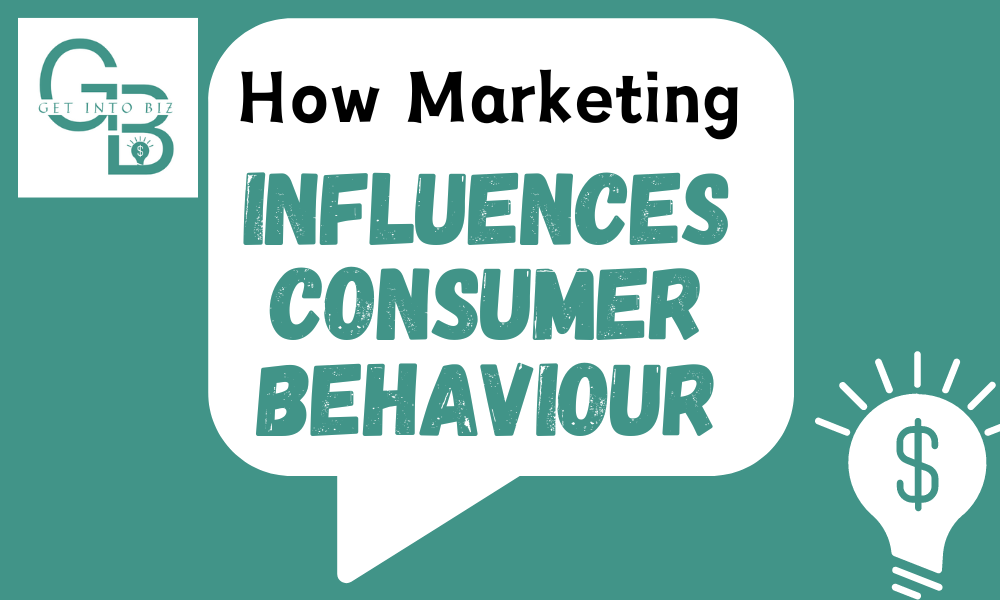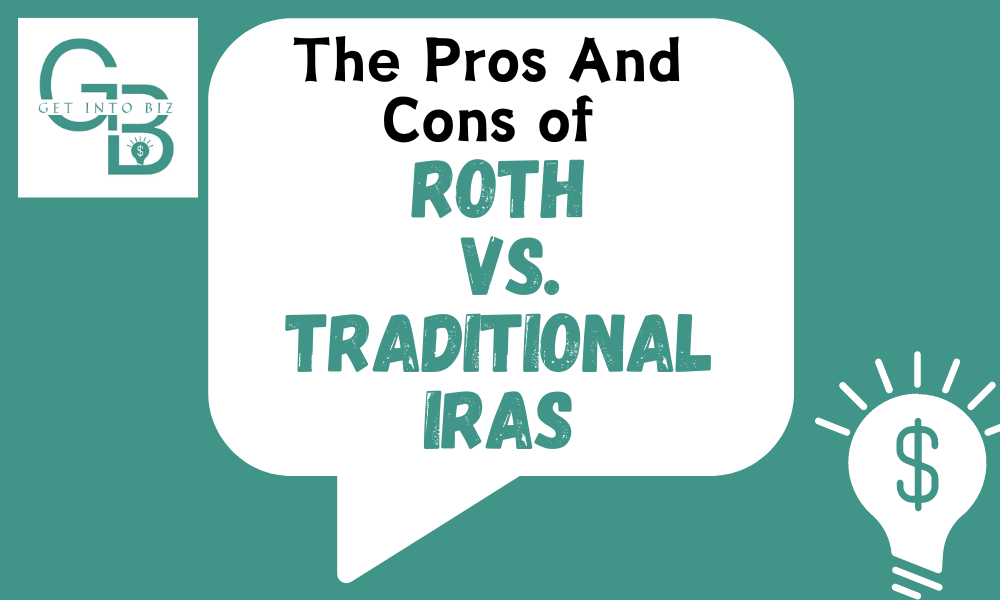Marketing influences consumer behavior by shaping perceptions, creating desires, and influencing purchasing decisions. Through strategic messaging, advertising, and branding, marketers can influence consumers to make specific purchasing choices.
Consumer behavior is influenced by various factors such as psychological, social, cultural, and personal aspects, which marketing seeks to understand and leverage. By targeting specific demographics and utilizing tailored advertising strategies, marketers influence consumer behavior to drive sales and brand loyalty.
The continuous evolution of marketing techniques and platforms further enhances its ability to shape consumer behavior in the modern marketplace. As a result, businesses must understand the power of marketing in influencing consumer behavior to effectively reach and engage their target audience.
Table of Contents
ToggleThe Impact Of Marketing On Consumer Behaviour
Marketing applies a powerful influence on consumer behavior through strategic messaging and targeted campaigns. By creating compelling narratives and tapping into emotions, marketers shape consumer perceptions and drive purchasing decisions. Understanding the impact of marketing tactics is crucial in today’s competitive landscape for businesses aiming to connect with their target audiences effectively.

Creating Brand Awareness
The first and most crucial impact of marketing on consumer behavior is the creation of brand awareness. By investing in various marketing strategies, businesses can effectively introduce their brand to consumers and make it known in the market. This helps consumers recognize the brand and remember it when making purchase decisions.
There are several tactics businesses use to increase brand awareness:
- Advertising on different platforms like television, radio, and social media.
- Sponsoring events or collaborating with influencers to reach a wider audience.
- Distributing promotional materials such as brochures, flyers, and business cards.
- Implementing search engine optimization (SEO) techniques to rank higher in search engine results.
Through these efforts, businesses create a strong presence and improve their chances of being considered by potential customers when making purchasing decisions.
Shaping Consumer Perception
Marketing also plays a significant role in shaping consumer perceptions about brands and products. Businesses use various tactics to influence how consumers perceive their offerings:
- Establishing a brand identity through consistent messaging and visual elements.
- Highlighting unique features and benefits of products or services.
- Creating a positive brand image through storytelling and customer testimonials.
- Utilizing social proof, such as reviews and ratings, to build trust and credibility.
By carefully curating their marketing messages, businesses can position themselves as trustworthy, reliable, and industry leaders. This positively influences consumer perceptions and increases the likelihood of consumers choosing their products or services over competitors.
Psychology Behind Marketing Strategies
Understanding the psychology behind marketing strategies is crucial for businesses looking to influence consumer behavior effectively. By tapping into the deep-rooted emotions, desires, and needs of consumers, marketers can create powerful campaigns that connect with their target audience and drive sales.

Understanding Consumer Needs
One of the key elements of effective marketing is understanding consumer needs and desires. By diving into the psychology of consumers, marketers can identify the underlying motivations that drive their purchasing decisions. It is important to recognize that consumer needs go beyond basic physical needs. They encompass desires for emotional fulfillment, social connection, and self-expression.
Marketers can conduct comprehensive market research to gain insights into these needs. Through surveys, focus groups, and data analysis, they can uncover consumer preferences, pain points, and aspirations. This knowledge serves as the foundation for crafting marketing messages that connect with consumers on a personal level.
Utilizing Behavioral Economics
Behavioral economics is a branch of psychology that explores how individuals make decisions in the context of economic behaviors. By understanding the principles and biases that influence consumer decision-making, marketers can craft strategies that utilize these insights to their advantage.
One key concept of behavioral economics is the use of cognitive biases. Humans are prone to certain biases, such as the bandwagon effect, where individuals are influenced by the actions of others. Marketers can utilize this bias by showcasing social proof, such as testimonials or user-generated content, to convince consumers to follow suit.
| Cognitive Biases | Marketing Strategy |
| The bandwagon effect | Showcasing social proof |
| Loss aversion | Highlighting potential losses if consumers do not take action |
| Anchoring bias | Presenting a higher-priced option first to make subsequent options seem more affordable |
Another important principle of behavioral economics is the role of emotions in decision-making. Emotions play a significant role in shaping consumer behavior, and marketers can tap into this by creating emotionally compelling campaigns. By evoking positive emotions or addressing consumer pain points, marketers can trigger a stronger response and increase the likelihood of conversion.
In conclusion, understanding the psychology behind marketing strategies is key to influencing consumer behavior effectively. By recognizing consumer needs and utilizing principles from behavioral economics, marketers can create powerful campaigns that connect with their target audience and drive desired outcomes.
Influence Of Social Media Marketing
Exploring the Influence of Social Media Marketing reveals the powerful impact it has on consumer behavior. The way brands connect with their audience through online platforms like social media significantly shapes consumer decisions.

Building Online Communities
Creating online communities through social media helps brands increase direct relationships with consumers.
- Provides a platform for engagement
- Enhances brand loyalty
- Encourages word-of-mouth marketing
Leveraging Influencer Marketing
Incorporating influencer marketing into social media strategies allows brands to reach a wider audience through trusted personalities.
- Builds credibility with consumers
- Generates authentic content
- Drives targeted engagement
The Role Of Emotional Marketing
Emotional marketing plays a crucial role in influencing consumer behavior. By eliciting emotional responses, creating brand loyalty, and establishing a deep connection with the audience, emotive marketing strategies can guide consumer decisions and preferences.
Expressing Emotional Responses
Emotional marketing focuses on triggering feelings and sentiments in consumers to establish a powerful connection with the brand or product. This can be accomplished through storytelling, powerful imagery, or empathetic messaging. This method taps into the customer’s emotions, ultimately shaping their purchasing choices. Brands that effectively express emotional responses can create a lasting impact on their target audience, influencing their behavior profoundly.
Creating Brand Loyalty
Emotional marketing increases brand loyalty by establishing a strong emotional bond with consumers. When a brand connects with an individual’s values or experiences, it creates a sense of loyalty that goes beyond mere transactions. Through emotional marketing, brands can foster lasting relationships that result in repeat purchases and positive word-of-mouth marketing.
Impact Of Cultural Factors On Consumer Behaviour
Understanding cultural values plays a crucial role in shaping consumer behavior. Culture encompasses a range of factors, including beliefs, customs, language, religion, and social norms, that influence how individuals perceive and interpret the world around them. These cultural factors significantly impact consumer purchasing decisions, making it vital for marketers to understand and adapt their strategies accordingly.
Understanding Cultural Values
Cultural values form the foundation of consumer behavior. They shape individual’s preferences, attitudes, and behaviors when it comes to making purchasing decisions. By understanding these values, marketers can identify the driving forces behind consumer behavior and modify their strategies to cater to specific cultural groups or communities.
Adapting Marketing Strategies
To effectively influence consumer behavior, marketers need to adapt their strategies to align with cultural values. By recognizing cultural differences and respecting diversity, marketers can create campaigns that connect with their target audience. It’s essential to consider aspects such as language, symbolism, traditions, and aesthetics that hold significance in different cultures.
Language
Adapting marketing materials to the local language can make a significant impact on consumer behavior. Addressing consumers in their native language not only improves knowledge but also creates a sense of familiarity and trust. It shows respect for cultural diversity and increases the likelihood of consumers engaging with the brand.
Symbolism and Traditions
Symbols and traditions hold great importance in various cultures. Incorporating these elements into marketing campaigns can evoke emotional connections and reinforce cultural identity. By utilizing traditional symbols or customs, marketers can create a sense of belonging and resonance with the target audience, leading to increased brand loyalty.
Aesthetics
Cultural aesthetics, including color schemes, design patterns, and artistic preferences, can significantly impact consumer behavior. Adapting visual elements and overall aesthetics to match the cultural norms and taste preferences of a specific target market can enhance the appeal and attractiveness of marketing materials, effectively influencing consumer decision-making.
Understanding the impact of cultural factors on consumer behavior is vital for marketers to design effective strategies. By recognizing and respecting cultural values, marketers can connect with their target audience on a deeper level, increasing a sense of trust and loyalty. Adapting marketing strategies to align with cultural preferences allows brands to stand out in the competitive landscape and create meaningful connections with consumers.
Ethical Considerations In Marketing
In marketing, ethical considerations are crucial when influencing consumer behavior. It is important to ensure that marketing strategies are transparent and truthful and do not manipulate consumers into making decisions that go against their best interests. Marketers should prioritize building trust and providing accurate information to consumers to maintain ethical standards in their marketing efforts.
Promoting Ethical Practices
Marketing has a significant impact on consumer behavior, shaping their perceptions and influencing their purchasing decisions. However, in an ever-changing business landscape, ethics play a crucial role in guiding marketing practices. Promoting ethical practices enables businesses to build trust with their target audience and create long-term relationships based on transparency and integrity. To promote ethical practices in marketing, businesses must first ensure that their advertising and promotional materials are truthful and backed by accurate information. Transparently representing products or services not only builds credibility but also establishes a sense of trust among consumers. Businesses should avoid making exaggerated claims or false promises that may mislead consumers. Another important aspect of ethical marketing is treating consumers with respect and fairness. This includes avoiding discriminatory advertising practices that target or marginalize specific groups. Businesses should strive to create inclusive marketing campaigns that appeal to a diverse consumer base, increasing an environment of equality and acceptance. Furthermore, businesses should prioritize protecting consumer privacy and data. In this digital age, consumer information is a valuable asset, and companies must handle it responsibly. Obtaining proper consent and utilizing secure encryption methods are essential in building trust and safeguarding consumer privacy.
Avoiding Manipulative Techniques
While marketing is aimed at influencing consumer behavior, it is vital to avoid manipulative techniques that exploit consumers’ vulnerabilities or create a sense of false urgency. By employing ethical marketing practices, businesses can ensure that their advertisements are genuine and do not exploit consumers’ emotions or manipulate their decision-making. One technique to steer clear of is emotional manipulation. Businesses should strive to appeal to consumers through positive emotions rather than manipulating negative emotions such as fear or guilt. Creating value through products or services and fostering authentic connections with consumers forms the foundation of ethical marketing.
Additionally, businesses should avoid engaging in deceptive advertising practices. Misleading consumers through hidden fees, false product claims, or confusing terms and conditions breaks trust. Transparent pricing, clear product information, and accurate descriptions are essential to maintaining ethical marketing standards. By involving ethical principles, businesses not only build a strong foundation of trust with their consumers but also increase a positive reputation in the market. Consumers are increasingly conscious of the companies they choose to support, and ethical marketing practices can differentiate businesses from their competitors, creating a competitive advantage in the long run. Emphasizing transparency, fairness, and respect in marketing strategies ensures that businesses generate trust and maintain a strong ethical standing.
In conclusion, marketing plays a crucial role in shaping consumer behavior through strategic campaigns and messaging. By understanding psychological triggers, businesses can effectively influence purchase decisions. Remember, tapping into consumer emotions drives engagement and loyalty. Stay informed, adapt to trends, and continually refine your marketing strategies to stay ahead. With consumer behavior constantly evolving, staying active and responsive is key to success.







